Drinks Innovators of the Year 2023
Our second annual Drinks Innovators of the Year reveal the extraordinary creativity and ambition going on in the drinks world right now.

For our second annual Food & Wine Drinks Innovators of the Year, we combed the ranks of brewers, winemakers, and distillers to single out the people changing the way we drink. But innovation doesn't necessarily just mean a new tweak to a process or a new category of alcoholic (or non-alcoholic) beverage. It can mean exploring new ways of looking at how we drink, or working with raw materials that play a role in the changing environment of our planet. Innovation doesn’t have to be technical; it can also be social. We don't enjoy our favorite beverages in a vacuum.
So who did we find? At La Garagista in Vermont, Deirdre Heekin makes extraordinary wines in a climate on the very edge of where grapes can be grown. Just outside of Los Angeles, Edgar Preciado is championing Latino culture in craft-brewing through his brand Beer Thug Brewing. Ntsiki Biyela, South Africa’s first Black woman winemaker, uses grapes to tell a story that needs to be heard at her Aslina Wines. And Luke Anderson and Jake Bullock are crafting delicious low-dose cannabis seltzers, taking on the new wave of culinary cannabis in liquid terms.
Ever heard of Makgeolli? Neither had most of the U.S., until Carol Pak thought to put this traditional fermented Korean rice drink in cans with her brand Sool. Meanwhile, Spearhead Spirits’ Chris Frederick and Damola Timeyin are turning on the world to vodkas and gins that capture the taste of ingredients indigenous to the continent of Africa. At Tamworth Distilling in New Hampshire, Steven Grasse distills inventive, delicious spirits with unconventional stories — like a whiskey distilled with an invasive species of green crab that’s wreaking havoc on the East Coast’s shellfish industry. Take that, bad crabs.
Taken together, our Drinks Innovators personally illustrate where the entire drinks industry is headed these days. And the drinks they make are ones you can get their hands on right now. They’re what the future tastes like.
Ntsiki Biyela — Aslina Wines, Somerset West, South Africa
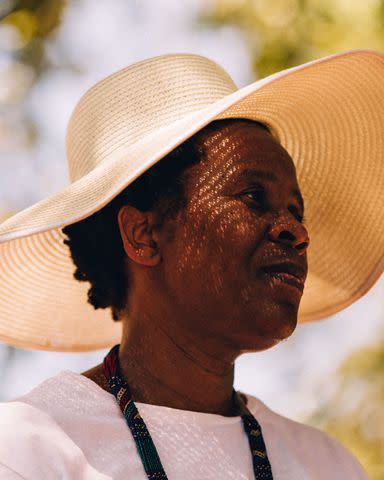
Robbie Lawrence
Had Ntsiki Biyela been granted the scholarships she applied for in pursuit of her childhood dream, which was to become a chemical or civil engineer, the world would have missed out on not only a talented winemaker, but one who has broken barriers and shattered wine-world stereotypes. But those scholarships didn’t come through, and Biyela instead applied for a winemaking scholarship as a last-ditch effort to attend college. Once enrolled at Stellenbosch University, about 900 miles and a world away from her village in KwaZulu-Natal, she realized she was where she was destined to be. “The winemaker I worked with as a student was so passionate about what he was doing that at that moment, I said, ‘I want to be like him.’” Read More.
Steven Grasse — Tamworth Distilling, Tamworth, New Hampshire
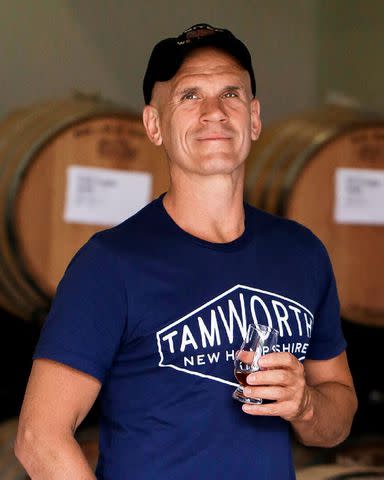
Courtesy of Quaker City Mercantile
Founder of the Philadelphia agency Quaker City Mercantile, Grasse is the marketer who, in 1999, dreamed up Hendrick’s Gin. He imagined for it “this incredibly complex, creative world” where “the real and the surreal coexist in playful harmony,” says the spirit’s master distiller, Lesley Gracie. When he then sold the brand for a pile of money, he launched Tamworth Distilling, a laboratory for his brainstorms. “We make 55 different products. It’s Willy Wonka,” says Grasse. But quality is key. Take Crab Trapper. “It’s attention-getting, but it’s made really well. If we’re going to make a whiskey using invasive crabs, it’d better be good.” Read More.
Deirdre Heekin — La Garagista, Vermont
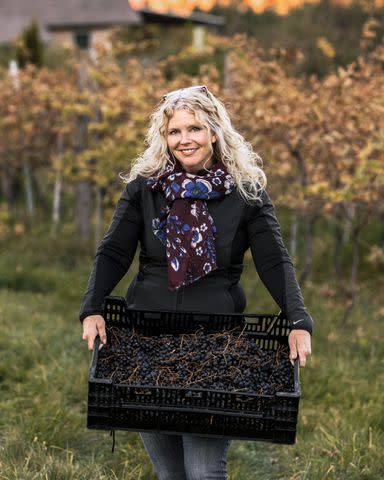
Greta Rybus
The history of Vermont wine can be separated into two eras: pre– and post–Deirdre Heekin and her winery, La Garagista. With frigid winters, short summers, too much mud, and loads of deer ticks, the Green Mountain State is not a likely spot for winemaking stardom. But even before Heekin had bottles for sale, she believed that Vermont’s wine could be worthy, or even great. Read More.
Chris Frederick and Damola Timeyin — Spearhead Spirits, London & KwaZulu-Natal, South Africa
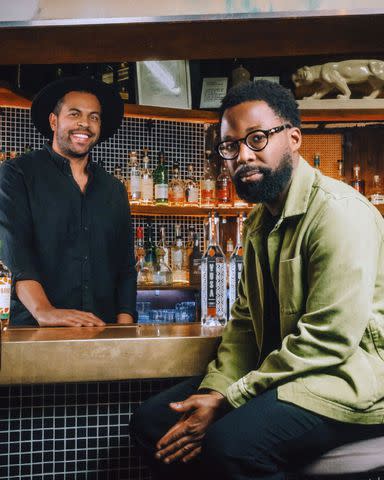
Kadir Gold
Ever had a gin flavored with baobab fruit? If not, seek out a bottle of Chris Frederick and Damola Timeyin’s Bayab gin. The two London-based friends are the cofounders of Spearhead Spirits, whose aim is, as Frederick says, “to put Africa on every back bar in the world.” The genesis for the brand was their realization that there were virtually no Black-owned African spirits for sale around the world. “The ones that get exported from Africa aren’t usually a true expression of the African diaspora,” Frederick says. Read More.
Carol Pak — Sool, New York

Heehyun Oh
With a background in market research in the U.S. and Asia, Carol Pak knew exactly what kind of new beverage product might thrive in today’s drink scene: a canned, low-ABV, flavored drink that wasn’t bitter. And in 2017, while on a family trip to Korea, she found the perfect candidate in makgeolli, a cloudy-white, sparkling, sweet, and tangy fermented rice drink that’s been brewed and consumed in Korea for over 2,000 years. Pak suspected Korea’s oldest alcoholic beverage could succeed in America. But makgeolli had a stigma: It was known for being low quality, for being sold cheaply in large plastic bottles, and for causing god-awful hangovers. Read More.
Luke Anderson and Jake Bullock — Cann, Los Angeles

The market for marijuana-infused edible goods was teeming with garishly packaged, high-dose plays on childhood staples like Sour Patch Kids, Swedish Fish, and Kit-Kat bars in 2019. While nostalgia certainly sells (just ask any bartender how many Cosmopolitans or Appletinis they’ve whipped up in the past year), Jake Bullock and Luke Anderson, two friends who met while working as management consultants in San Francisco, sought a slightly less callow approach to cannabis. As legalization reached a turning point in states like Illinois, New York, and Massachusetts, the duo realized that there was nothing on the market that would appeal to the cautiously curious, epicurean cannabis consumer — the person who would rather drink a single-vineyard Pinot than a jug of Carlo Rossi Sweet Red. They felt these people would respond to products that actually tasted good and that also wouldn’t make them feel like sheepish teenage stoners. Read More.
Edgar Preciado — Beer Thug Brewing, Bell, California
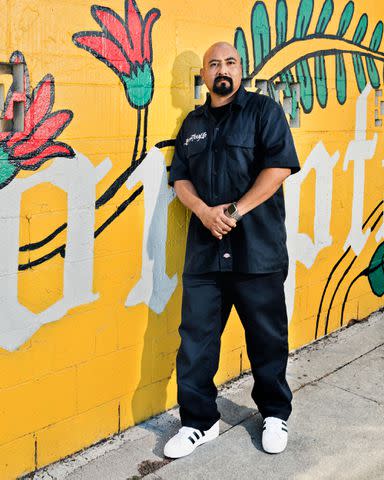
Dylan + Jeni
One night in 2018, Edgar Preciado stood alone in his Compton, California, kitchen. He cursed a bit, poured a much-hyped hazy IPA into a glass, and chugged. Instead of tasting notes, Preciado unfurled two middle fingers as hip-hop played, then pointed to his “Beer Thug Life” beanie. End scene. “It was like, screw you and your fancy drinking,” says Preciado, who posted the clip to his Instagram, @beerthuglife. The message was brash and clear: Forget fussing. Let’s have fun. And everyone’s invited to craft brewing’s increasingly diverse party. Read More.
For more Food & Wine news, make sure to sign up for our newsletter!
Read the original article on Food & Wine.